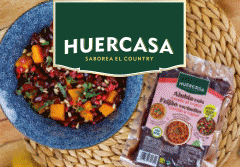One of the most common queries is: does eating garlic on an empty stomach promote weight loss? From a nutritional perspective, garlic also raises many questions, often leading to online searches about its health benefits.
Garlic is healthy, but not a miracle cure
The scientific name for garlic is Allium sativum, and its origins are believed to trace back to southwestern Siberia, although this is still debated. Regardless of its precise origin, garlic has been widely used in gastronomy and culture for centuries.
Garlic is rich in sulfur compounds, such as quercetin, which have been extensively studied for their potential health benefits. These include cardiovascular protection and immune system support.
However, there is no scientific evidence that garlic aids weight loss, nor that consuming it at a specific time, such as on an empty stomach makes any difference. The topic of fasting has also been a subject of controversy in recent years, but it still presents many uncertainties for the scientific community.
Foods do not cause weight loss
No food has weight-loss properties in and of itself. For weight loss to occur, there must be a caloric deficit, meaning burning more calories than consumed, which, when combined with regular physical activity, helps reduce body fat levels.
Certain foods contain bioactive compounds like flavonoids and antioxidants, which may support fat metabolism. For example, catechins found in green tea have shown some potential in enhancing fat oxidation.
However, these effects are minimal compared to other key lifestyle habits that contribute to healthy weight management. Prioritizing a nutrient-dense diet is far more beneficial. This means focusing on:
- Fruits, vegetables, whole grains, nuts, legumes, eggs, and fish
- Healthy fats, such as extra virgin olive oil, which is known for its cardioprotective properties
- Proper hydration and balanced meals
RELATED NEWS: Fruit Logistica’s innovations and insights attract record attendance
On the other hand, reducing the intake of ultra-processed foods—which are often loaded with added sugars, unhealthy fats, salt, and refined flours—can have significant positive effects on overall health.
And, of course, regular physical activity is just as essential as a healthy diet for maintaining good physical and mental health.
So, the takeaway? Focus on sustainable lifestyle habits rather than miracle remedies with no scientific basis. Garlic is undoubtedly a healthy food, but you don’t need to eat it raw or on an empty stomach to enjoy its culinary and health benefits.




















